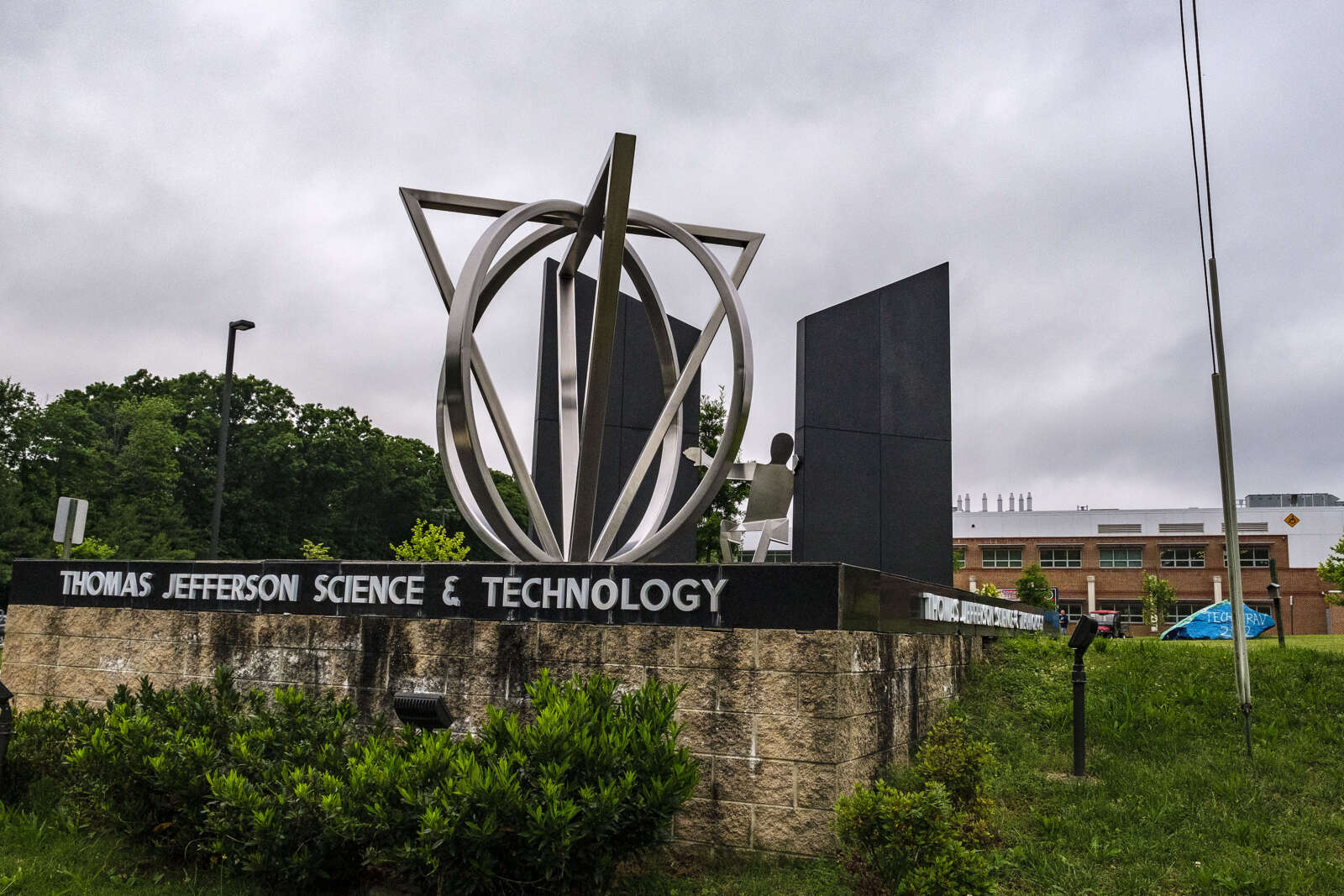
Thomas Jefferson High School for Science and Technology’s current admissions policy will remain in place after the U.S. Supreme Court declined to consider a lawsuit alleging that it discriminates against Asian students.
The Supreme Court denied a petition for a hearing today (Tuesday) by the Coalition for TJ, an advocacy group that sued the Fairfax County School Board in 2021 after the admissions process for the highly competitive magnet school was revised with the goal of diversifying the student body.
The Supreme Court’s decision not to take up the case ends a legal battle that lasted nearly three years and could’ve upended diversity initiatives in public education nationwide.
“We have long believed that the new admissions process is both constitutional and in the best interest of all of our students,” said School Board Chair Karl Frisch, who represents Providence District. “It guarantees that all qualified students from all neighborhoods in Fairfax County have a fair shot at attending this exceptional high school.”
The school board voted in December 2020 to eliminate a standardized test and application fee that were previously required for students seeking admittance into Thomas Jefferson High School (TJ). The board also raised the minimum grade point average for applicants, guaranteed eligibility to the top 1.5% of eighth graders at each middle school and added essay requirements and consideration of “experience factors” such as a student’s status as a recipient of free meals or involvement in special education.
Spurred by student activism after Fairfax County Public Schools reported that fewer than 10 Black students had been accepted in both 2019 and 2020, the policy overhaul has resulted in more diverse classes at TJ, particularly in terms of geography and income, since the changes took effect in 2021 for the Class of 2025.
Though Asian students got 61.6% of offers for the freshman class that entered last fall, compared to 19% for white students, 6.7% for Black students and 6% for Hispanic students, the Coalition for TJ has argued that the revised policy was designed to reduce the number of Asian students at the school, violating Constitutional protections against racial discrimination.
A district court judge agreed with the coalition in 2022 that Asian American students were “disproportionately harmed,” ordering FCPS to scrap the new admissions policy. However, that ruling was overturned last May by an appeals court panel that found the coalition had failed to prove that the school board “adopted its race-neutral policy with any discriminatory intent.”
The coalition petitioned the Supreme Court to pick up the case after the justices ruled in June 2023 that colleges can’t explicitly consider race as part of their admissions processes, ending decades of affirmative action programs intended to boost Black, Hispanic and other often underrepresented students.
Pacific Legal Foundation senior attorney Joshua Thompson, who represented the Coalition for TJ, says the Supreme Court “missed an important opportunity” to address admissions policies like the ones adopted for TJ that don’t explicitly consider race but still affect student demographics.
“Today, the American Dream was dealt a blow, but we remain committed to protecting the values of merit, equality, and justice,” Coalition for TJ co-founder Asra Nomani said in a statement. “…For the courageous families who have tirelessly fought for the principles that our nation holds dear, this decision is a setback but not a death blow to our commitment to the American Dream, which promises equal opportunity and justice for all.”
In a statement from FCPS, Frisch noted that TJ has accepted students from every Fairfax County middle school and maintained an average grade-point average for its incoming classes of 3.9 over the past three years.

The Coalition for TJ is petitioning the U.S. Supreme Court to consider its lawsuit challenging the constitutionality of Thomas Jefferson High School for Science and Technology’s admissions policy, which was revised in 2020 with the goal of diversifying the student body.
In the petition filed Monday (Aug. 21), the advocacy group argues that the changes approved by the Fairfax County School Board discriminate against Asian students, who saw their share of the magnet school’s incoming classes drop from more than 70% to closer to 60% in the past few years.
The coalition indicated it would take the case to the country’s highest federal court after a Fourth Circuit Court of Appeals panel ruled 2-1 in the school board’s favor on May 23.
But the fight over TJ’s admissions has grown in significance following the Supreme Court’s June 29 decision to prohibit colleges from considering race in admissions decisions. Where that case tackled policies that explicitly take race into account, the Coalition for TJ contends that race-neutral policies designed to boost underrepresented groups can still violate other students’ equal protection rights.
“The Fourth Circuit’s ruling merits this Court’s review because it presents a question of national importance that the Court has yet to answer directly,” Pacific Legal Foundation attorneys representing the coalition wrote in their petition. “Coming as it does on the heels of last Term’s decision curtailing racial discrimination in higher education admissions, this is one of several ongoing challenges to competitive K-12 admissions criteria that seek to accomplish a racial objective ‘indirectly’ because it ‘cannot be done directly.'”
Spurred by student and alumni activism, the school board overhauled the TJ admissions process after Fairfax County Public Schools reported that fewer than 10 Black students had been accepted in both 2019 and 2020.
In addition to eliminating an application fee and rigorous standardized test, the new policy bumped up the GPA requirement to 3.5, granted eligibility to the top 1.5% of eighth graders at each middle school, introduced a “portrait sheet” where students discuss their skills and write a problem-solving essay, and allows consideration of students’ economic status or involvement in English as a Second Language and special education programs.
The changes were the latest attempt to bring more Black, Hispanic and low-income students to TJ, which is often ranked among the top high schools in the U.S. but has long faced scrutiny for admissions practices that critics argued catered to families who could afford to live in certain neighborhoods and pay for private tutoring and test-preparation services.
Since the revised policy took effect in 2021, FCPS has touted increased racial, geographic and economic diversity in each of the three admitted classes, which have all included students from every Fairfax County middle school — something that hadn’t happened in the prior decade.
FCPS has argued that the changes were race-blind and benefitted all groups, including lower-income Asian students. The appeals court judges who sided with the school board said the Coalition for TJ failed to prove that Asian students were “disparately” affected and “that the Board adopted its race-neutral policy with any discriminatory intent.”
FCPS didn’t return a request for comment by press time.
In a joint statement, a collection of civil rights and community advocacy groups — including the Virginia NAACP, TJ Alumni for Racial Justice, CASA Virginia, Hispanic Federation, Hamkae Center and Asian American Youth Leadership Empowerment and Development (AALEAD) — argued that the Coalition for TJ’s lawsuit would limit, rather than expand, equal access to education.
“In essence, the plaintiff seeks to cement pre-existing inequalities by prohibiting school districts from trying to remedy any unfairness in the admissions process that may change the racial makeup of accepted students,” the groups said.
“Every parent wants to know their child will not be disadvantaged in our public education system no matter their personal wealth or language abilities,” Hamkae Center Director Sookyung Oh said. “It is imperative that students from communities of color, including Asian Americans, will not be disadvantaged by an unfair admissions process and will have the same access…only previously afforded to those with the wealth and privilege to get their children into schools like TJ.”
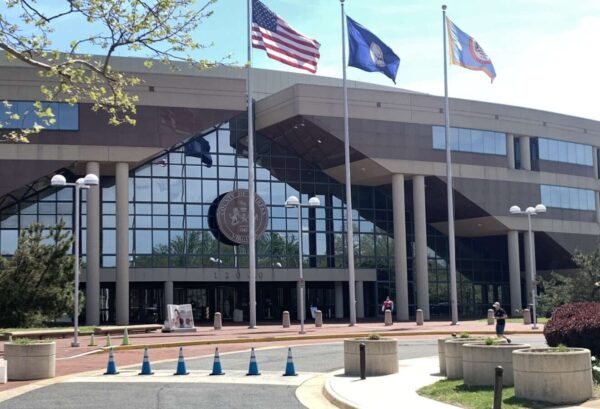
(Updated at 2:25 p.m.) Fairfax County officials are hoping to clear up a legal kerfuffle over its zoning ordinance, which was readopted last week after getting voided by the Virginia Supreme Court earlier this year.
Before readopting a modernized version of the zoning ordinance — known as zMod — on May 9, the county filed a petition for a rehearing in the Supreme Court case Berry v. Fairfax County Board of Supervisors.
The court struck down the ordinance on March 23 — nearly two years after it first took effect — because it was originally adopted during a virtual meeting and therefore violated the Virginia Freedom of Information Act.
The court argued that the county’s state of emergency rules for Covid only allowed virtual meetings on issues “necessary to ensure the continuation of essential functions and services,” which it said didn’t include updating a document last overhauled in the 1970s.
Most residents testifying at an in-person public hearing on zMOD’s readoption last week opposed the update.
Even though zMOD has now been reinstated, the county confirmed to FFXnow that it’s still pursuing the request for a rehearing in the Berry case.
“The Berry opinion was broadly framed and has potential implications that reach beyond zMOD,” a county spokesperson said. “The decision affects numerous localities, among many other public bodies, across the Commonwealth who conducted electronic meetings in good faith reliance on the relevant state legislation to protect their residents during the pandemic.”
The petition argued that the Supreme Court’s opinion not only raised questions about close to two years of zoning actions, but also forced “every public body in the Commonwealth that met electronically during the pandemic…to examine its actions and speculate whether this Court would deem them ‘time-sensitive.'”
In the filing, the county argued that the board acted in “good faith” by holding virtual public meetings in the midst of the pandemic, and they were consistent with Virginia’s limits on public gatherings at the time, which had dropped to 10 people when the board authorized public hearings on zMOD in December 2020.
The county also argues that voiding zMod “casts doubt on years of pandemic-era decisions made in good faith reliance on the budget language.”
Walsh Colluci Lubeley & Walsh, a prominent law firm in the area that handles many Fairfax County land use applications, has also filed two amicus briefs on behalf of the Home Builders of Virginia, the Virginia Association for Commercial Real Estate and the Virginia Land Title Association.
They argue that the Supreme Court’s decision has “already had a significant adverse effect on local governments and private sector entities statewide.”
“The court’s reasoning has cast a cloud over a vast number of land use approvals and permits, not just in Fairfax County but throughout the Commonwealth,” one filing states, adding that “the number of applications potentially impacted by the court’s decision cannot be understated.”
The court could rehear the case if any of the seven justices determine there is good cause.
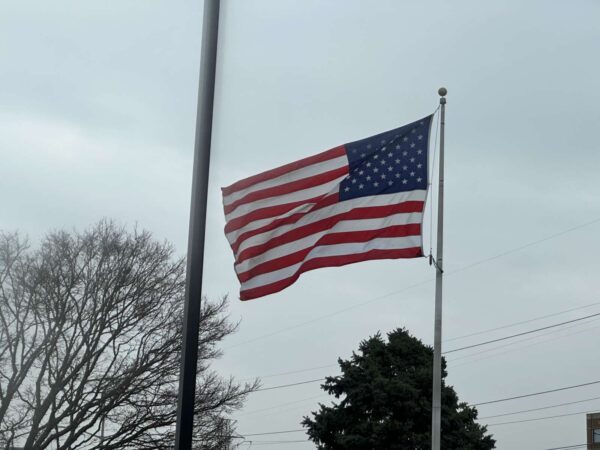
A day after neighboring Arlington County made waves by ending single-family exclusive zoning, Fairfax County saw its own zoning reforms reversed two years after they were approved.
The Virginia Supreme Court declared the county’s Zoning Ordinance Modification Project (zMOD) void yesterday (Thursday) because the new code was adopted at a mostly virtual meeting — a ruling could have consequences for other actions taken during the first years of the pandemic, as noted by Inside NoVA, which first reported the decision.
The county is now operating under its previous zoning ordinance, which had been in place since 1978, according to the zoning administration division’s website.
“We are currently evaluating the Virginia Supreme Court decision and considering our options,” Tony Castrilli, the county’s director of public affairs, said. “In the meantime, the 1978 Zoning Ordinance is presently in effect and available for reference on the County website.”
In a 29-page opinion, Justice Wesley Russell sided with four residents who argued that the Fairfax County Board of Supervisors violated the Virginia Freedom of Information Act’s open meeting requirements by not holding an in-person public hearing or vote.
The county contended that an ordinance adopted on April 14, 2020 gave it the flexibility to hold public meetings on the zoning update and other subjects electronically during the Covid state of emergency.
The Supreme Court disagreed that the ordinance allowed the county government to conduct all regular business electronically, finding that the zoning update doesn’t qualify as “necessary to ensure the continuation of essential functions and services.”
“The modification of a 40-year-old zoning ordinance after a five-year revision process does not satisfy this standard,” Russell wrote. “It is not a time-sensitive matter, and its adoption is not and was not necessary to allow the County to continue operations.”
The residents behind the lawsuit — David Berry, Carol Hawn, Helen Webb and Adrienne Whyte — filed a complaint in Fairfax County Circuit Court on March 5, 2021 seeking to prevent the board from adopting zMOD at a public hearing on March 9, 2021.
The circuit court denied the request and ultimately dismissed the complaint on Sept. 9, 2021, stating that it had been rendered moot by the adoption of zMOD on March 23, 2021 and that the county board’s emergency powers gave it the authority to act at an electronic meeting. Read More
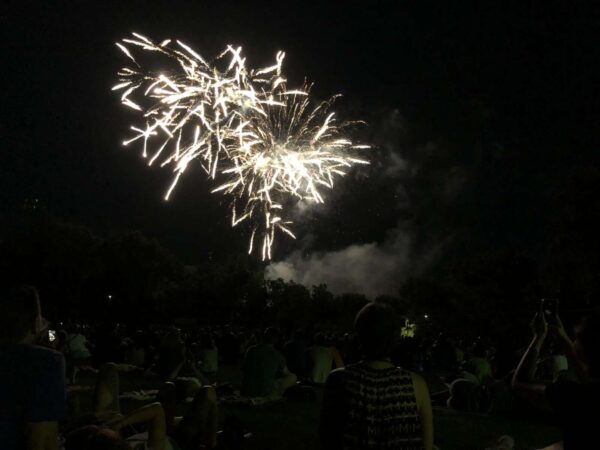
Springfield Motorcyclist Dies After Burke Crash — Becoming the sixth non-pedestrian killed in a vehicle crash this year, Nema Mirsaeedi, 31, of Springfield died yesterday after being thrown from his motorcycle in a crash with a car attempting to turn into a shopping center on Burke Center Parkway. The crash occurred at 6:39 p.m. on Sunday (July 3) and remains under investigation. [FCPD]
County Responds to Supreme Court Security Request — “Supreme Court Marshal Gail Curley originally penned the letter, asking that state and local law enforce their respective picketing laws near the homes of Supreme Court justices…Fairfax County officials say they already received the letter and that their stance remained unchanged.” [WTOP]
FCPS Officially Has New Superintendent — “Michelle Reid, Ed.D. was sworn in as the superintendent of Fairfax County Public Schools on Thursday, June 30, at Luther Jackson Middle School. Her term begins Friday, July 1. ‘It’s important for me to remember that learning happens best in community, and this is an amazing community,’ said Dr. Reid.” [FCPS]
Hiker Injured Falling Off Great Falls Ledge — “On Saturday, at 2:31 p.m., units were dispatched to 9200 Old Dominion Drive for an injured hiker. Hiker fell 40 feet down a steep rocky ledge. Crews fully immobilized and carried person out via stokes basket to Fairfax County Police Department helicopter. Transported with serious, but non-life-threatening injuries.” [FCFRD/Facebook]
Fairfax History Commission Seeks More Resources — “Commission Chairman Cheryl Repetti, who delivered the group’s annual report to the Board of Supervisors June 28, asked supervisors to finance a full-time staff member and allot extra county staff hours to help fulfill the board’s requests of the commission.” [Sun Gazette]
South Lakes HS Stadium Closed — “Hey Seahawks…Our stadium is CLOSED while we make some improvements to it. The turf is being replaced & the bleachers are getting a minor upgrade. Should take a month. Thanks for your patience.” [South Lakes Athletics & Activities/Twitter]
Longtime McLean Postal Workers Retire — “[Scott] Arnold and his best friend in the Postal Service, Rob Receveur, both had served McLean for years, and this past week, both were celebrated as they hung up their mailbags…It’s hard to quantify Arnold’s legacy, but you can sense his effect by how the neighborhood’s residents have shifted their lives to remain close to him.” [The Washington Post]
Firefighter Adopts Rescued Kitten — “May 28, Tower 424 and Tech Austin Adams rescued kitten out of a tree. Kitten was very young. @FairfaxCountyPD Animal Protection took him to @fairfaxanimals. Tech Adams kept in touch. Thursday, he and his wife adopted kitten — now named Ash!” [FCFRD/Twitter]
Virginia Shares Data on Firearm Injuries — “The Virginia Department of Health (VDH) launched a new data dashboard on firearm injuries in Virginia showing the number and rate of emergency department (ED) visits from 2016 to 2022. The dashboard shows firearm injury data by year, health district, age group, sex, and race/ethnicity across Virginia.” [VDH]
It’s Tuesday — Rain in the evening. High of 84 and low of 71. Sunrise at 5:51 am and sunset at 8:39 pm. [Weather.gov]
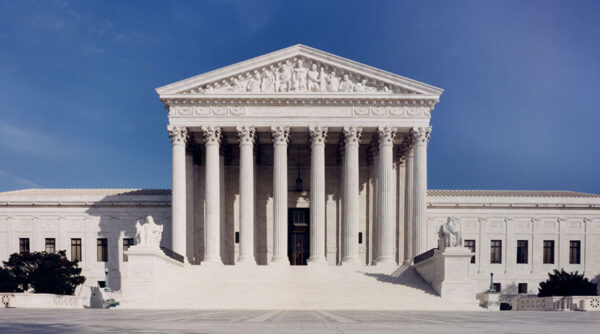
(Updated at 7:30 p.m.) The U.S. Supreme Court overturned Roe v. Wade today (Friday) in a landmark decision that will effectively ban abortion in more than a dozen states.
Abortion remains legal in Virginia, which doesn’t have so-called “trigger laws” that would go into effect with the court’s ruling.
However, shortly after the news broke this morning, Gov. Glenn Youngkin (R) told The Washington Post that he will seek to ban most abortions after 15 weeks of pregnancy.
Youngkin put out a statement in response to the decision:
The Supreme Court of the United States has rightfully returned power to the people and their elected representatives in the states. I’m proud to be a pro-life Governor and plan to take every action I can to protect life. The truth is, Virginians want fewer abortions, not more abortions. We can build a bipartisan consensus on protecting the life of unborn children, especially when they begin to feel pain in the womb, and importantly supporting mothers and families who choose life. That’s why I’ve asked Senator Siobhan Dunnavant, Senator Steve Newman, Delegate Kathy Byron and Delegate Margaret Ransone to join us in an effort to bring together legislators and advocates from across the Commonwealth on this issue to find areas where we can agree and chart the most successful path forward. I’ve asked them to do the important work needed and be prepared to introduce legislation when the General Assembly returns in January.
The decision will also not immediately impact the legality of abortion in neighboring D.C. and Maryland.
Fairfax County Commonwealth’s Attorney Steve Descano, the county’s top prosecutor, stated that he will never prosecute women for having an abortion, even if the state laws change, a sentiment he previously shared in a New York Times op-ed.
No matter what the law in Virginia says, I will not prosecute a woman for having an abortion, or for being suspected of inducing one. pic.twitter.com/kgDD1KGWPd
— Fairfax County Commonwealth's Attorney Descano (@FairfaxCountyCA) June 24, 2022
Most of Fairfax County’s representatives expressed outrage, describing the ruling as a rollback on human rights and a “dark moment.”
President Joe Biden, who previously said he’d look to shore up abortion rights, is expected to deliver remarks on the decision at 12:30 p.m.
Fairfax County Board of Supervisors Chairman Jeff McKay said in a statement that he’s “deeply concerned about the future of women’s rights and healthcare in our nation” but noted that the Supreme Court ruling won’t immediately affect abortion access in Virginia. Read More

News that the Supreme Court plans to overturn its landmark 1973 abortion-rights Roe v. Wade decision prompted a rush of support to at least one Fairfax County area abortion clinic and expressions of concern from many legislators representing the area.
The Supreme Court confirmed that a leaked draft opinion published on Monday (May 2) by Politico is authentic, adding that the document does not represent the “final position on any member on issues in the case.”
While the decision isn’t final, it’s already drawing cheers from abortion opponents and horror from reproductive justice advocates, who say a Roe v. Wade reversal will be particularly harmful for low-income people, people of color and other marginalized groups.
“If true, this opinion would be an all-out assault on a woman’s right to make choices about her own reproductive health,” U.S. Rep. Jennifer Wexton (D-10th) said on Facebook. “I’m doing everything in my power to fight for the right to have an abortion.”
The Falls Church Healthcare Center has seen an outpouring of support from people wanting to volunteer, development director Mike Scheinberg said.
The private medical clinic provides abortions, gynecology and obstetrics services, counseling, and more. Less than 10% of the clinic’s patients come from out of state, but if Roe v. Wade is overturned, the health center likely would serve more such patients in the future, he said.
“Unfortunately and tragically, a decision to overturn Roe v. Wade is going to adversely [impact] mostly individuals who are pregnant people of color and those…who are not in great financial state,” Scheinberg said. “It discriminates against the poor.”
He said the possibility of curtailing abortion rights comes as little surprise, as many states, including Virginia, have put obstacles in place to limit access. The Commonwealth started requiring ultrasounds and 24-hour waiting periods in 2012, but the General Assembly repealed those measures in 2020.
Still, he said advocates are monitoring recent bills in the Commonwealth’s General Assembly.
“It’s unknown what will happen considering that our governor is a staunch opponent of abortion access,” Scheinberg said. Read More

